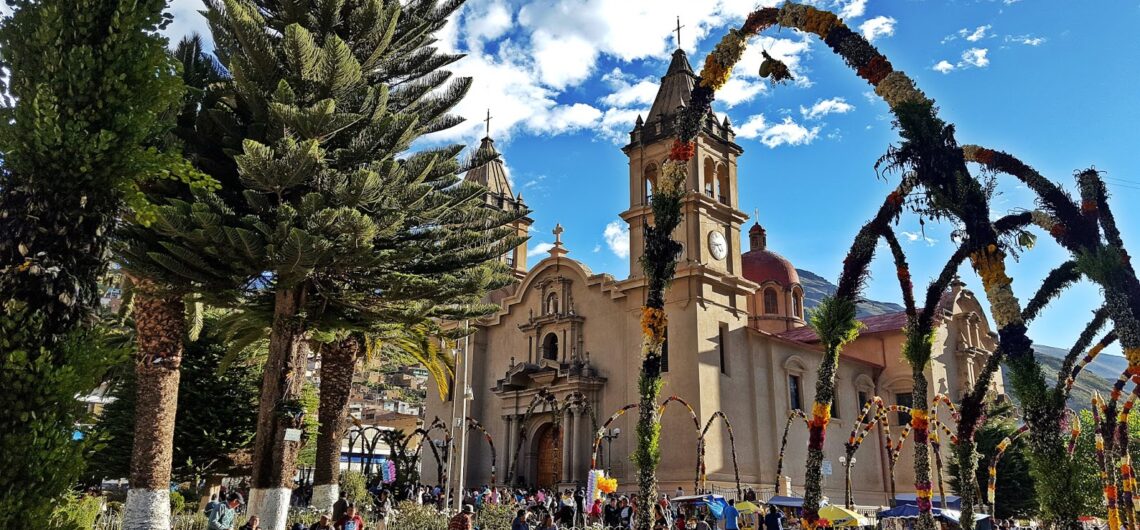Aracari is well versed in understanding Peru’s yearly calendar scattered with celebrations, and the Easter period is no exception. In fact, the days of Easter celebrations in Peru – the Holy Week of the Catholic faith – are marked by some of the nation’s most notable festivals and events.
Catholicism arrived with the Spanish in the XVI century and was adopted by the indigenous communities alongside existing practices and beliefs. Today, this hybridity makes for an interesting blend in the religious identity of the country, one that is uniquely Peruvian. The duality emerges in rituals that blend the native enamour for Mother Earth with the ceremonies of the Catholic church, in a way that Marisol and her team know to be immensely captivating for both participant and spectator.
So, as we approach the weekend of Easter celebrations in Peru, Aracari offer you a glimpse into the real Peru at Easter. Not the attractions performed for visitors, but those celebrations revelled in by locals each year, from the Central Andes to Northern tip of the Huascarán National Park. This insider guide to Peru at Easter time has been crafted from 25 years’ experience in showcasing the heritage and history of the country. From the sombreness of Good Friday, to the jubilation of Easter Sunday – the following celebrations are those which to Aracari, encapsulate the spirit of Peru at Easter time.
***Due to the pandemic, celebrations in 2021 are set to be a little different. But as pioneers of exceptional travel experiences, Aracari wanted to look forward to a time when crowds can be shoulder-to-shoulder once more, revelling in some of Peru’s most spectacular Easter celebrations.
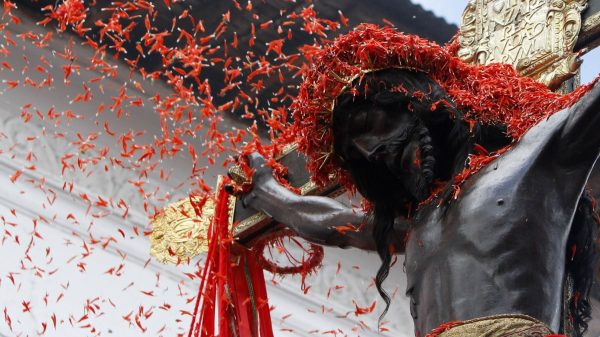
1. Our Lord of the Earthquakes Procession
Cusco is of course one of the most popular destinations for Aracari guests, and during Holy Week this remarkable city does not disappoint. The world-renowned Easter festival held here was founded in remembrance of an earthquake that took place in 1650, hence its namesake.
Taking place on Holy Monday, the ceremony itself consists of a six-hour procession, whereby the statue of the crucifixion of Christ – Taytacha Temblores (Our Lord of the Earthquakes) – is paraded through the Cusco.
The statue is the patron Lord of Cusco, and its significance in Peruvian Easter tradition comes with an interesting backstory often retold by Aracari’s local guides.
A few years after the statue arrived, a shattering earthquake struck Cusco in 1650. Desperate, the locals pulled the statue out of the church and carried it through the streets. Soon afterward, the earthquake stopped. This miraculous event has been commemorated every year since.
Aracari guests visiting Cusco for the celebrations can expect to observe the happenings from the comfort of a balcony overlooking the Main Square.
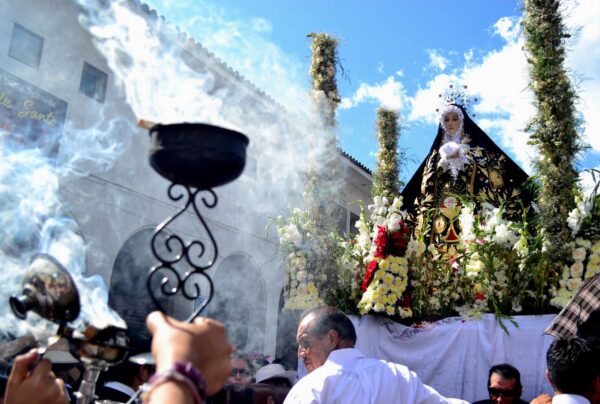
2. Easter Sunday Festival in Ayacucho
Ayacucho, a city in the south-central Andes, is known for its religious festival that lasts for ten days, with the 30+ local colonial churches marking the Easter celebrations in Peru.
Beginning on Palm Sunday, the locals transport a statue of Christ to Ayacucho’s central plaza by mule. As the statue approaches the square, spectators wave blessed palm leaves in praise. Each day that follows in Holy Week is marked with vibrant processions and religious ceremonies. For Holy Wednesday, worshippers re-enact the meeting of Jesus and Mary by carrying images of both throughout the streets. Good Friday is a day of mourning, honored by switching off all the city’s lights, before locals embark on a sombre candlelight procession through the city. On Holy Saturday, the city comes alive with joy again, and as the sun rise, Ayacucho echoes with fireworks, songs and prayers.
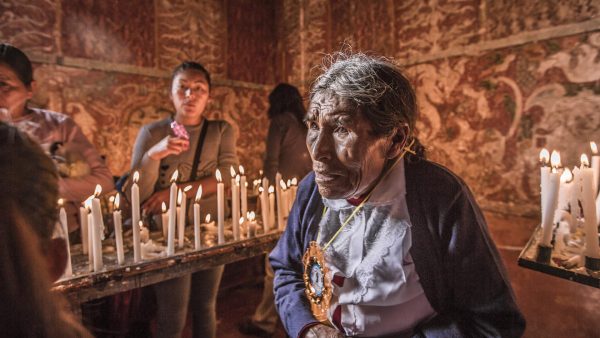
3. The Crucifixion Procession of Huaraz
On Palm Sunday, Huaraz begins its famous Easter festivities – re-enacting Jesus’ arrival in Jerusalem. Good Friday marks one of the most significant events of the week. The procession that begins at 2am at the Church of Soledad; a solemn occasion, the congregations re-enact the crucifixion of Christ.
On Easter Sunday, the celebrations conclude with two more major processions – each starting on the opposite side of town. One marks the procession of Christ, whilst the other is the procession of Mary, with both meeting in the central plaza of Huaraz.
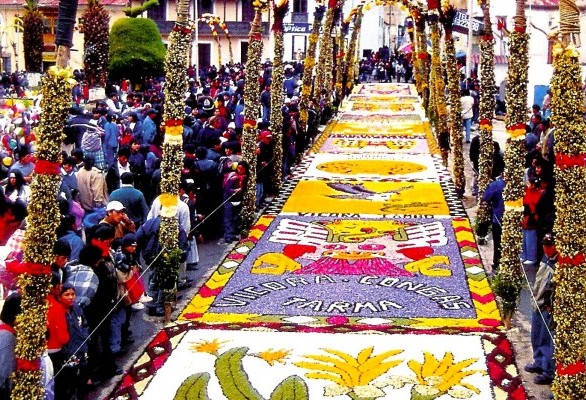
4. Flower Carpets of Tarma
Each year Tarma is transformed, each street paved with carpets of flowers. Made from the region’s distinctive and vibrant local flora, every flower carpet is crafted with a unique design, made by talented and creative locals of all ages.
Once the flowers adorn the city’s alleyways and archways, the Easter events begin, starting the procession of the Virgin of Sorrows at Catedral de Santa Ana. The week’s festivities conclude on Easter Sunday, when the whole town celebrates in a procession of the Risen Christ. The entire 11-block processional path is carpeted in regions flowers, it is a true sight to behold.
—
As well as these Easter celebrations in Peru, there are a whole host of events and festivals that happen at other times of year. Discover Aracari’s long list of Peru’s most famous celebrations here.
If you’d like to experience the spirit of Peru at Easter, talk to Marisol and her team, and discover how you could build a tailormade itinerary around some of the country’s most spectacular festivals.
Contact us

